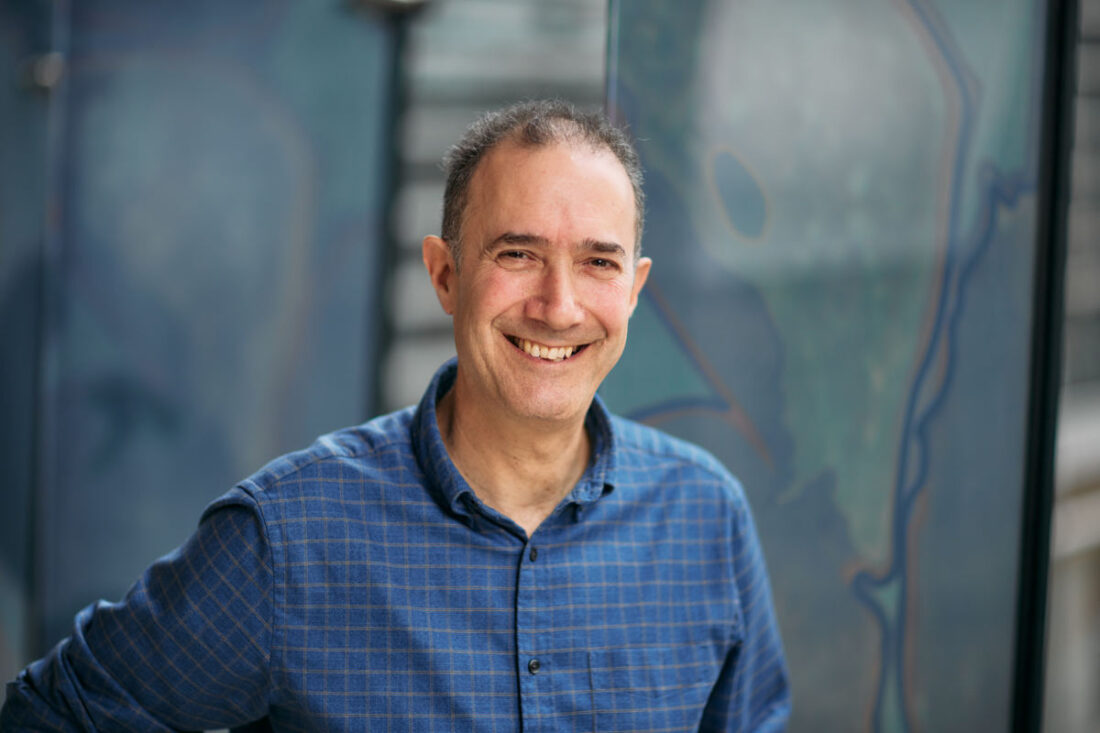Jordan Raff receives Excellence in Science Award

Jordan Raff joined the Dunn School in 2009 to take up the Chair of Cancer Cell Biology named after César Milstein, also a previous winner of this award. He is currently combining genetic, biochemical and cell biological approaches, together with advanced microscopy and mathematical modelling, to understand the fundamental principles that regulate centriole and centrosome assembly.
Jordan first started to work on centrosomes and cell division in the fruit fly Drosophila melanogaster during his PhD with David Glover at Imperial College London. He continued to work in this area as a post-doctoral fellow with Bruce Alberts at the University of California, San Francisco. He started his own group at the Gurdon (formerly Wellcome/CRC) Institute in Cambridge, first as a Wellcome Trust Senior Research Fellow and then as a CRUK funded Research Fellow, later moving to Oxford.
Major discoveries by the Raff lab include the remarkable observation that flies lacking centrioles, centrosomes and cilia can proceed through most of development normally, changing the textbook view that centrioles/centrosomes are essential for mitosis. A systematic search for genes required for centriole/centrosome biogenesis led to the discovery that overexpressing a single gene (PLK4) amplifies centrosomes in most fly cells and predisposes them to tumours, suggesting a causative link between centrosome amplification and cancer. More recently, his team showed that just three proteins (Spd-2, Polo and Cnn) cooperate to form a scaffold that can potentially explain one of the great mysteries of centrosomes: how the two mitotic centrosomes in a cell always grow to the same size.
“When I look at the previous winners of this prize I am truly astounded to be included in this list. I am very lucky to have worked with a talented group of people who generated the body of work that led to this award, as well as for the support of my wife Rachel. I will always be grateful for all their insights, support and hard work.” said Jordan. “I’m hopeful that this award might help to remind the wider biomedical community that flies and other model organisms still have a lot to offer. There are still so many fascinating and fundamental questions in cell biology that remain to be addressed. I strongly believe that it is worth asking these questions, and that simple model systems are best placed to address them—even if the answers may not immediately help us to cure human disease.”
Jordan has served as President of the British Society for Cell Biology, as Editor in Chief of the not-for-profit Open Access Journal Biology Open, and currently serves on the Council of the American Society of Cell Biology. He was elected an EMBO member and a Fellow of the Academy of Medical Sciences in 2018. He has always taken a keen interest in promoting the public understanding of science.
The Biochemical Society’s ‘Excellence in Science Award’, sponsored by Portland Press, has been awarded since 1965, and is presented annually in recognition of contributions to the development of any branch of the molecular biosciences, for work carried out in the UK and the Republic of Ireland. Previous awardees include several Nobel Prize winners as well as the Dunn School’s Head of Department Professor Matthew Freeman.
More information about the recipients of the other 2023 Biochemical Society Awards can be found on the society’s website.
More information about Jordan Raff and his research can be found on his group’s page.